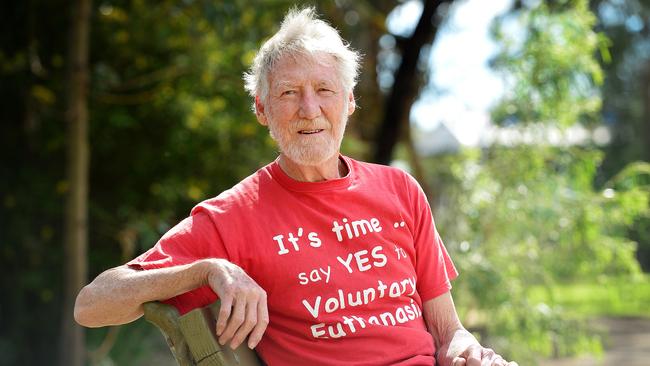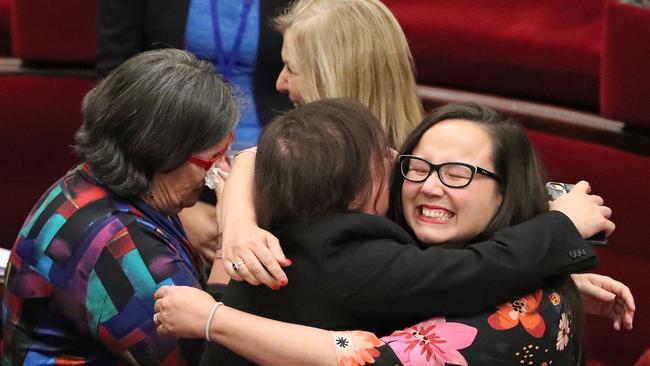Euthanasia is not the mark of a civilised society
PERSONAL experience shouldn’t be a factor in deciding something as fraught as euthanasia, writes Peta Credlin.

Rendezview
Don't miss out on the headlines from Rendezview. Followed categories will be added to My News.
IN the past two weeks, Australia has seen fundamental changes made in two areas, marriage and death, where things had been, as they were, for just about ever.
One was set in train by a vote of the people and the other, a vote for euthanasia, by the Victorian parliament.
The implication of these decisions will play out for years in society, but also politics. Our political leadership haven’t understood this properly yet but we may well remember this fortnight as the beginning of something quite convulsive in Australian politics.
For my part, crossing the Rubicon where we sanction the ending of life diminishes our shared humanity. I understand that good people will disagree and that often, our personal experiences with dying defines our viewpoint.

I could tell you that having lost my father to a stroke and a slow death six weeks later — he was only 60 and I was 25 — I might be a supporter of euthanasia. After all, no-one wants to see anyone they love suffer, and none of us want a painful death either.
But unlike so many others in this debate, I think it’s a mistake to see it through a personal prism.
In fact, that’s an indulgence if you’re making laws because we should make laws for the most vulnerable in society; for the worst case scenario, not the best.
We must make laws for the lonely, the depressed, the mentally at risk, those who might be preyed upon, the very old and the very young.
I don’t believe state sanctioned death — call it mercy-killing, call it euthanasia, call it assisted dying, whatever — is the mark of a civilised society.
Others will of course disagree. That’s what free speech is about.



